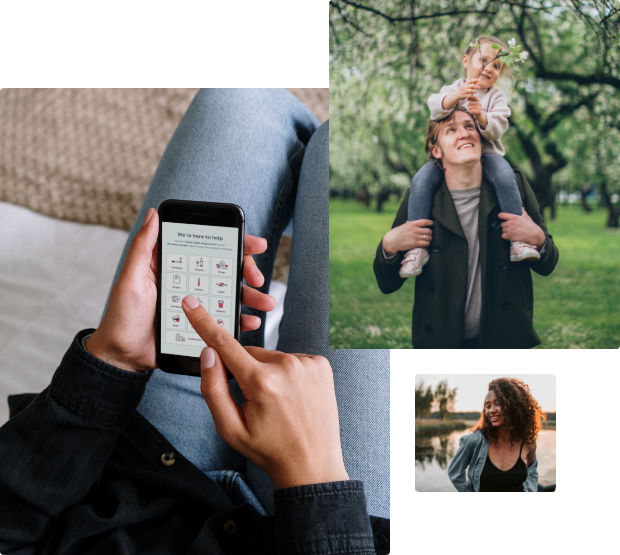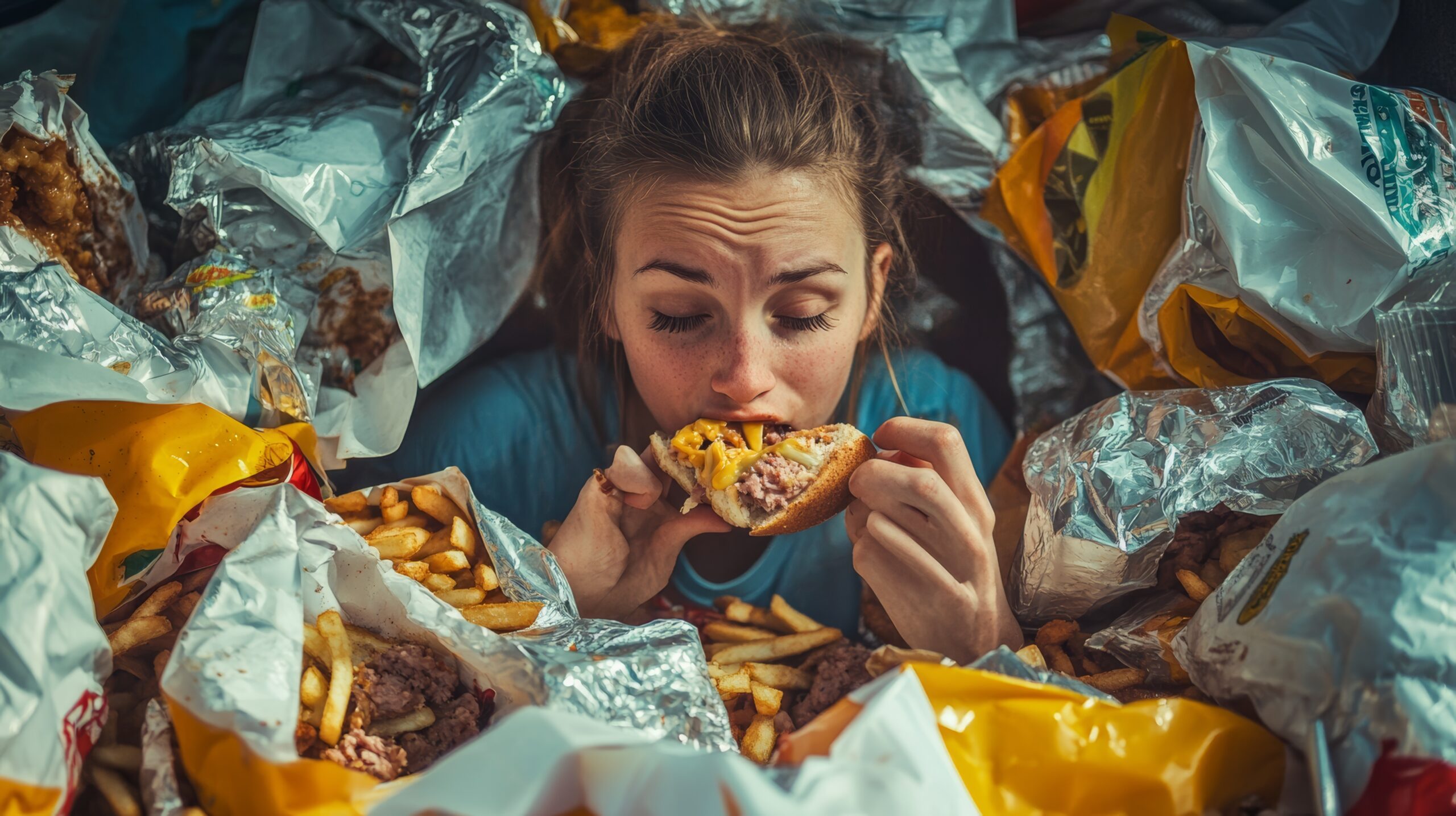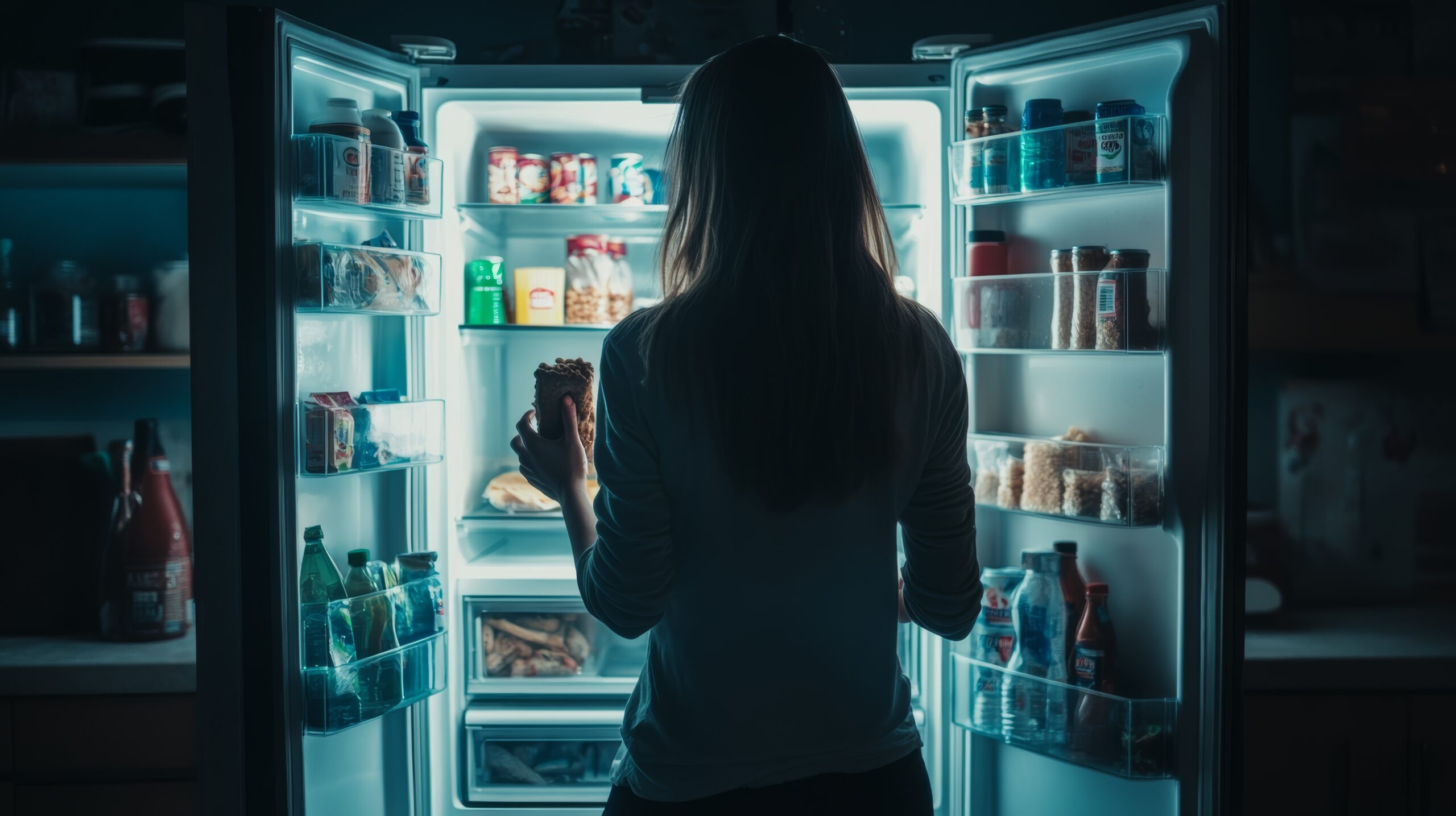Emotional Eating: What it is & how to stop it
Learn about emotional eating, its causes, signs, and solutions.

What’s stopping you?
Struggled with losing weight in the past? Unhappy about your relationship with food?
Start quizIntroduction
Emotional eating is a challenge faced by many, yet it remains an often misunderstood behaviour. At its core, emotional eating involves using food to cope with emotions rather than addressing the root causes.
While it may provide temporary comfort, it often leads to guilt, shame, and even physical health issues.
Here, we explore what emotional eating is, its causes, how to identify it, and effective strategies to overcome it.
What Is emotional eating?
Emotional eating is the act of consuming food in response to emotions, such as stress, sadness, boredom, or even happiness, rather than physical hunger.
It is a way of filling an emotional void or distracting oneself from uncomfortable feelings.
Unlike eating when hungry, emotional eating is often impulsive and involves consuming junk food, ultra processed foods, comfort foods high in sugar, fat, or salt.
For example, after a tough day at work, you might find yourself reaching for a tub of ice cream or a bag of chips, not because you’re hungry but because it feels like a reward or a way to unwind.
What causes emotional eating?
Several factors contribute to emotional eating, including:
-
Stress
Chronic stress increases cortisol levels, which can trigger cravings for high-calorie comfort foods.
-
Childhood actions
If food was used as a reward or comfort in childhood, this pattern of behaviour can carry into adulthood.
-
Emotional suppression
Using food to numb or distract from feelings like loneliness, sadness, or anxiety.
-
Biological factors
Imbalances in hunger-regulating hormones, such as leptin and ghrelin, can exacerbate emotional eating tendencies.
-
Social influences
Celebrations, peer pressure, or cultural norms around food can reinforce emotional eating patterns.
How to know of you are an emotional eater
Identifying emotional eating is the first step toward addressing it. You might be an emotional eater if:
- You eat when you’re not hungry or after feeling stressed, bored, or upset.
- You crave specific comfort foods rather than a balanced meal.
- Eating provides temporary relief but leaves you feeling guilty or ashamed afterward.
- You find yourself eating in response to emotions or to avoid dealing with them.
- Your eating habits are out of alignment with your physical hunger signals.
What’s stopping you?
Struggled with losing weight in the past? Unhappy about your relationship with food?
Need help to lose weight?
Want to, but concerned that you’ll find it tough?
Worried that you’ll be deprived for the rest of your life without the food you like?
We can help you to understand and remove those fears and in so doing, make it easy.
Start the free quizHow to stop emotional eating
Breaking free from emotional eating doesn’t have to be daunting. With the right approach, you can regain control and foster healthier eating.
Instead of placing painful restrictions on your eating behaviour, Allen Carr’s Easyway method frees you from your psychological dependence on food all together.
By following the method’s clear instructions, you can quit emotional eating without willpower or sacrifice.
Escape the emotional eating trap with Easyway and lead a happier, healthier life.
Below are some tips that many people use but the best way to get free is with a method that works – Allen Carr’s Easyway to Stop Emotional Eating:
-
Recognise triggers
Keep a journal to track when and why you eat. Identifying patterns can help you understand the triggers behind emotional eating.
-
Pause and reflect
Before reaching for food, ask yourself: “Am I physically hungry, or am I trying to soothe an emotion?”
-
Practice mindful eating
Slow down and focus on the experience of eating. This helps you reconnect with your body’s hunger cues.
-
Find alternative outlets
Replace emotional eating with activities that provide comfort or stress relief, such as walking, journaling, or calling a friend.
-
Stay nourished
Balanced meals and regular eating times can prevent blood sugar dips that exacerbate cravings. Read about foods that cub sugar cravings
-
Seek support
Consider talking to a professional or joining a support group to address underlying emotional issues. Allen Carr’s Easyway is here to help
Is emotional eating an eating disorder?
While emotional eating can significantly impact your well-being, it is not classified as a clinical eating disorder.
However, it can overlap with conditions like binge eating disorder if it leads to episodes of consuming excessive amounts of food in a short period.
If emotional eating feels uncontrollable or is causing distress, seeking professional guidance is essential.
Alternatives to emotional eating
When we are stressed or unhappy, it is easy to turn to food as a source of comfort. But often overeating becomes a problem in itself.
Instead of placing painful restrictions on your eating behaviour, Allen Carr’s Easyway method frees you from your psychological dependence on food all together.
By following the method’s clear instructions, you can quit emotional eating without willpower or sacrifice.
Escape the emotional eating trap with Easyway and lead a happier, healthier life.
Below are some alternatives that are believed to help but the best way to get free is with a method that works – Allen Carr’s Easyway to Stop Emotional Eating:
-
Physical activity
Exercise releases endorphins, which improve mood and reduce stress. This doesn’t need to be running a marathon. Read more about Allen Carr’s Easyway to Enjoy Exercise for help and advice.
-
Creative outlets
Engage in activities like painting, writing, or playing music to channel emotions.
-
Relaxation techniques
Practice deep breathing, meditation, or yoga to calm the mind.
-
Social connections
Spend time with loved ones to feel supported and valued.
-
Self-care
Prioritise activities that nurture your well-being, such as reading, bathing, or enjoying nature.
Final Thoughts
Emotional eating is a learned behaviour—one that can be unlearned with patience and the right strategies.
Instead of placing painful restrictions on your eating behaviour, Allen Carr’s Easyway method frees you from your psychological dependence on food all together.
By following the method’s clear instructions, you can quit emotional eating without willpower or sacrifice.
Escape the emotional eating trap with Allen Carr’s Easyway to Stop Emotional Eating and lead a happier, healthier life.
Free Online Quiz
Not sure if you’re ready?
Daunted by the prospect of what what changing your eating habits will mean for you?
We can help.
Take a few minutes to fill out our online consultation and we will get back to you with our personalised recommendation.





